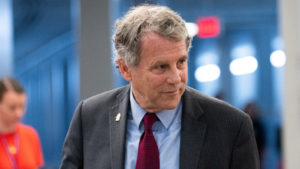Australia’s environment could be fixed and threatened species saved for just 0.3% of GDP, experts say | Environment
Saving Australia’s threatened wildlife, repairing degraded land and restoring ailing river systems is possible and would cost just 0.3% of Australia’s GDP, according to a new blueprint produced by more than 60 experts.
For the first time scientists, governance and business leaders have produced a dollar estimate of what it would take to fix Australia’s environment.
They set out 24 actions which, if followed, could “avoid most extinctions and recover almost all threatened species”, repair the productive base of agricultural soils and fix over-allocated and fragmented river systems.
The dollar figure – $7.3bn annually for the next 30 years – is less than two-thirds of the federal government’s reported annual expenditure on fossil fuel subsidies.
“The cost is less than 0.3% of our GDP. Given that nearly half of our GDP depends on nature, that’s a pretty sound investment,” the University of Queensland professor Martine Maron told the National Press Club on Wednesday.
Maron is part of the Wentworth Group of Concerned Scientists, which spent six years developing its Blueprint to Repair Australian Landscapes.
She said Australia’s spectacular and unique landscapes and beloved wildlife were a drawcard for domestic and international tourists alike, bringing billions of dollars into the Australian economy every year.
But she said many Australians did not realise that “all of this is genuinely under threat”.
“You’re all familiar with the ASX? Well, we have an index that tracks how our threatened species are going too,” she said.
“It’s called the TSX – the Threatened Species Index – and it shows that populations of our threatened species have declined 60% since 2000.”
The blueprint puts forward a national case for repairing degraded landscapes and taking practical action at a continental scale.
If adopted, the Wentworth Group said the measures it proposed “could repair much of the past two centuries of degradation”.
The actions include protection and restoration of threatened species habitat; addressing threats such as invasive species; expanding the use of Indigenous fire management practices; work to improve the physical and chemical condition of soils; and returning the Murray Darling Basin to environmentally sustainable levels of surface water extraction through measures including strategic water licence buybacks.
after newsletter promotion
The group said it was possible to return Australia’s native vegetation to at least 30% of its pre-1750 extent by restoring 13 million hectares of degraded ecosystems – much of that on non-prime agricultural land – and incentivising landholders to retire non-prime agricultural land and set it aside for nature conservation. They said this alone would abate almost one billion tonnes of carbon dioxide equivalent and produce $16-$34bn in carbon market revenue to landholders within 30 years.
Professor of geography at the Australian National University Jamie Pittock said Australia needed to recognise that the transition to net zero emissions was also an opportunity to repair the country’s landscapes at scale.
“The blueprint shows the repair actions will contribute to Australia meeting our international commitments on climate change and biodiversity, at the same time as boosting the economy through increasing regional employment, improving agricultural productivity, and building resilience to climate change,” he said.
“The key finding of our blueprint is that Australians don’t have to choose. We can afford to have both a healthy environment and a productive economy.”
The group estimates that after capital investment of $7.3bn annually for 30 years about $250m a year would be required to maintain the environmental outcomes.
The blueprint has been released at a time when the Albanese government is under pressure to deliver its full reform package for Australia’s national environmental laws.
Legislation is before parliament to establish a national environment protection agency and a new agency for environmental information.
But a broader package of legislation, including new national environmental standards, to fix Australia’s failing system of environmental protections has been delayed.
#Australias #environment #fixed #threatened #species #saved #GDP #experts #Environment
News plays a pivotal role in our lives by keeping us informed and connected to the world. It serves as a critical source of information, offering updates on current events, politics, economics, science, and more. Through news, we gain awareness of global issues and local developments, helping us make informed decisions in our personal and professional lives. News also fosters discussion and debate, encouraging critical thinking and perspective-taking. Moreover, it promotes transparency and accountability among governments, businesses, and other institutions. In a rapidly changing world, staying updated with the news enables us to adapt to new challenges and opportunities, shaping our understanding of the complexities of society. Ultimately, news is not just about information; it empowers us to participate actively in the world around us, contributing to a more informed, engaged, and responsible global citizenry.
Health is fundamental to our well-being and quality of life, making it an essential aspect of daily existence. It encompasses physical, mental, and emotional aspects, influencing our ability to function effectively and enjoy life fully. Prioritizing health allows individuals to maintain optimal physical fitness, reducing the risk of diseases and promoting longevity. Mental health, equally crucial, affects our cognitive abilities, emotional stability, and overall happiness. Investing in preventive healthcare through exercise, balanced nutrition, and regular medical check-ups helps in early detection of potential health issues, ensuring timely intervention and treatment. Beyond individual benefits, a population’s health impacts societal productivity and economic stability. Governments and organizations worldwide emphasize public health initiatives to address pandemics, health disparities, and promote overall well-being. Ultimately, health serves as the foundation upon which we build our lives, influencing our ability to pursue goals, nurture relationships, and contribute meaningfully to society.
Money plays a crucial role in our lives as a means of financial security and freedom. It enables us to meet basic needs such as food, shelter, and healthcare, while also providing opportunities for education, travel, and personal growth. Beyond material comforts, money facilitates social connections and experiences that enrich our lives. It empowers individuals to invest in their futures, whether through savings, investments, or entrepreneurial ventures, thereby fostering economic stability and growth. However, the pursuit of wealth should also be balanced with ethical considerations, as money can influence relationships and societal dynamics. Responsible management of finances is key to achieving long-term goals and mitigating financial stress. Ultimately, while money is a tool for achieving aspirations and fulfilling desires, its true value lies in how it is utilized to improve both personal well-being and the broader community.
Earning Easy Money in 2024: Opportunities and Considerations 💸
In 2024, the landscape of earning easy money presents diverse opportunities, albeit with considerations. The digital age offers platforms for freelancing, online trading, and e-commerce, allowing individuals to leverage skills and creativity for financial gain. Cryptocurrency investments continue to allure with potential for quick profits, yet they entail high volatility and risk. Moreover, the rise of the gig economy enables flexible work arrangements through apps and websites, offering quick payouts but often without job security or benefits. Passive income streams such as rental properties and investments in stocks or bonds remain viable, but demand initial capital and ongoing management. Amid these options, caution is essential to avoid scams and unsustainable ventures promising overnight success. Ultimately, while the allure of easy money persists, informed decisions, diligence, and a long-term perspective are crucial for sustainable financial growth and security in the dynamic year ahead.






